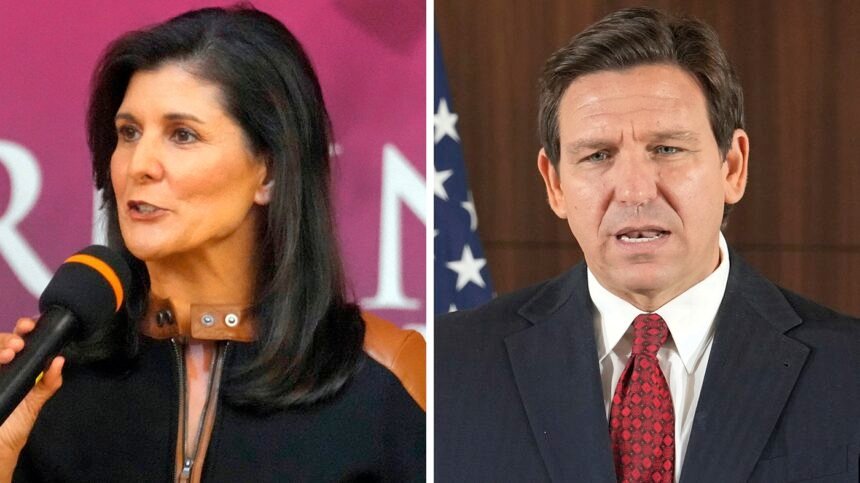Nikki Haley and Ron DeSantis found themselves at odds over Florida’s controversial education bill, HB 1557. This legislation has sparked heated debates across the political spectrum, particularly due to its restrictions on classroom discussions regarding gender and sexuality for children.
Governor Ron DeSantis, a prominent figure in conservative politics, criticized Nikki Haley for her opposition to HB 1557, questioning her suitability for the presidency. The bill, commonly known as the “Don’t Say Gay” bill, places limitations on what can be taught in Florida classrooms regarding gender identity and sexual orientation. Haley, a seasoned Republican figure and potential presidential candidate, stood firm in her dissent, emphasizing the importance of parental responsibility in shaping a child’s education.
One key point of contention between the two Republican leaders was Haley’s stance on age restrictions for gender-related procedures. DeSantis seized the opportunity to question Haley’s suitability for higher office, highlighting what he perceived as a misalignment with conservative values. The clash revealed deeper divides within the party regarding social issues and the role of the government in shaping educational curricula.
More About The Spat:
Haley, in response to the criticism, reiterated her commitment to parental rights and the belief that decisions on sensitive topics should be made within the family unit. The debate brought to the forefront Haley’s longstanding critiques of experimental transgender interventions for children, aligning her with a faction of Republicans who express concerns about the potential consequences of such medical procedures on young lives.
This clash between Haley and DeSantis also resurfaced discussions around Florida’s ‘Don’t Say Gay’ bill, further emphasizing the complex landscape of social issues within the Republican Party. As the GOP navigates its identity in a rapidly evolving political landscape, the tension between those advocating for traditional values and those emphasizing individual liberties continues to shape the party’s narrative.
The Haley-DeSantis clash underscores the broader debate within conservative circles about the limits of government intervention in personal and family matters. As Republicans grapple with these internal divisions, the outcome of this ideological struggle could significantly influence the party’s direction and messaging in the upcoming elections.
